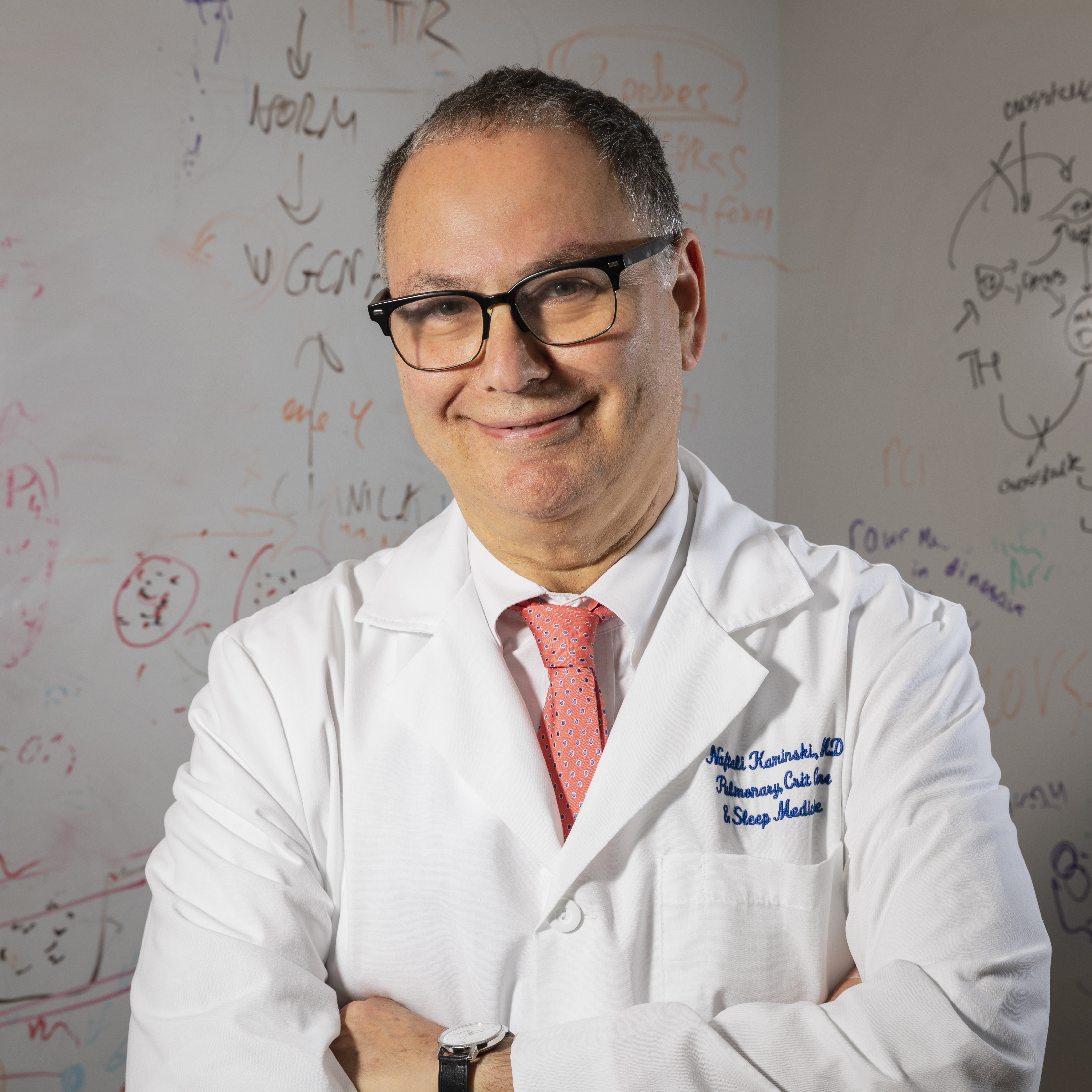Pulmonary researchers at Yale School of Medicine (YSM), National Jewish Health, and the Icahn School of Medicine at Mount Sinai were recently awarded $4.7 million by the National Center for Advancing Translational Sciences to conduct phase 1b/2a clinical trials of saracatinib to treat idiopathic pulmonary fibrosis (IPF). Saracatinib inhibits the activity of Src kinases, many of which participate in cellular signaling associated with fibrosis.
IDF is a disease that causes scarring, or fibrosis, in the lungs due to an unknown cause. According to the American Lung Association, 50,000 new cases are diagnosed annually. Over half of patients die from respiratory failure within three to five years after diagnosis. Currently, two medications ninetedanib and pirfenidone are approved for treatment of the disease and slow the progression of lung scarring, but do not cure IPF or improve the quality of life. They also have side effects that cause many patients to discontinue use.
Saracatinib is an experimental medication originally developed by AstraZeneca for the treatment of cancer. Saracatinib was selected for possible effectiveness against IPF after genetic studies demonstrated overlap in the genes and signaling pathways relevant in the disease and in those affected by saracatinib.
One of the co-principal investigators on the Saracatinib in the Treatment of Patient with Idiopathic Pulmonary Fibrosis (STOP IPF) trial, YSM’s Naftali Kaminski, MD, Boehringer-Ingelheim Endowed Professor of Internal Medicine and chief of pulmonary, critical care, and sleep medicine, applauds the team effort to start this clinical trial.
“This is a superb example of how collaboration between academia, the NIH, and the industry can introduce novel therapies,” said Kaminski. “Personally, I’m very excited to have the opportunity to participate in carrying through a finding from basic and preclinical studies to a clinical trial.”
The STOP IPF trial will enroll 100 participants with IPF to receive either saracatinib or placebo for 24 weeks. Researchers will evaluate the safety and tolerability of saracatinib in IPF; identify relevant biomarkers of Src kinase activity and fibrogenesis; and explore early indicators of saracatinib efficacy.
Greg Downey, MD, professor of medicine at National Jewish Health and Maria Padilla, MD, at the Icahn School of Medicine at Mount Sinai partner with Kaminski to serve as co-principal investigators for the trial.
The Section of Pulmonary, Critical Care and Sleep Medicine is one of the eleven sections within YSM’s Department of Internal Medicine. To learn more about Yale-PCCSM, visit PCCSM’s website, or follow them on Facebook and Twitter.
